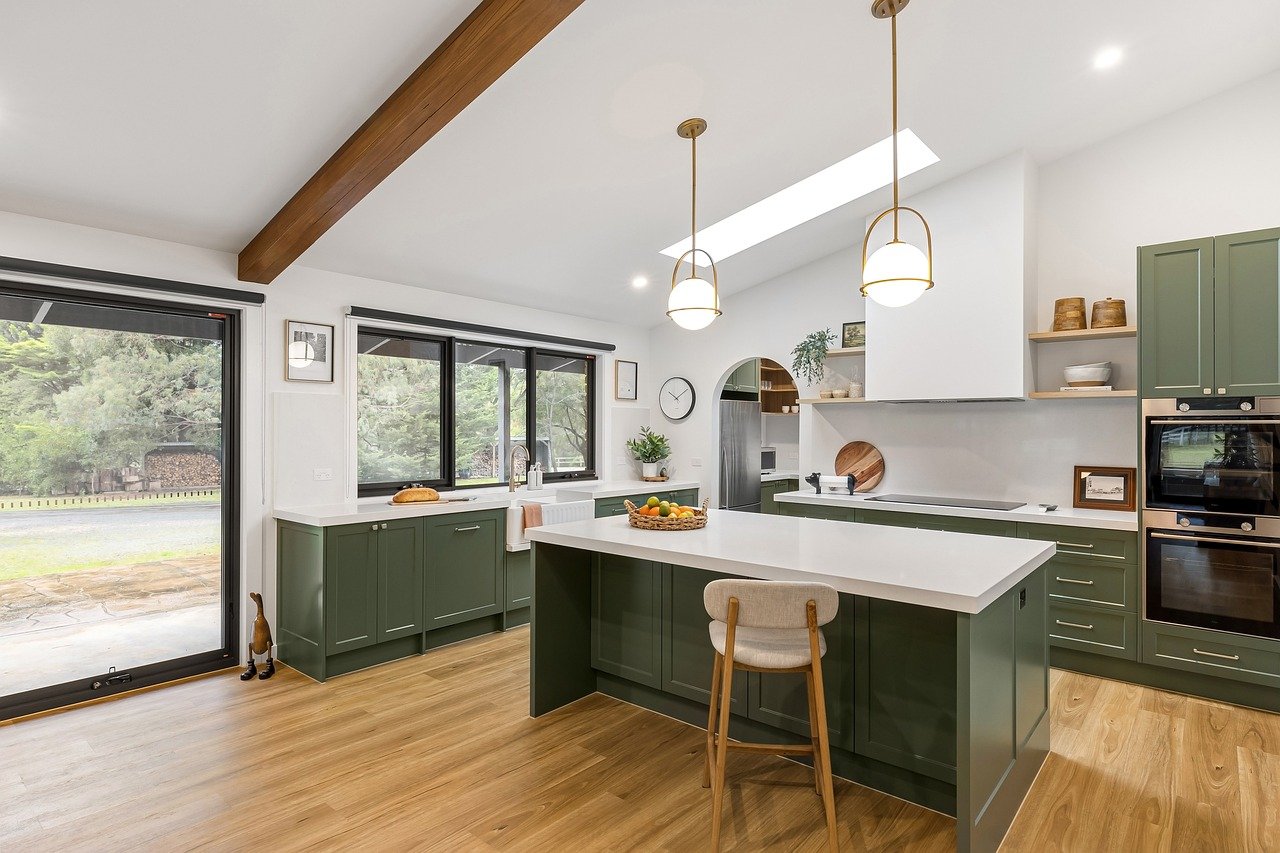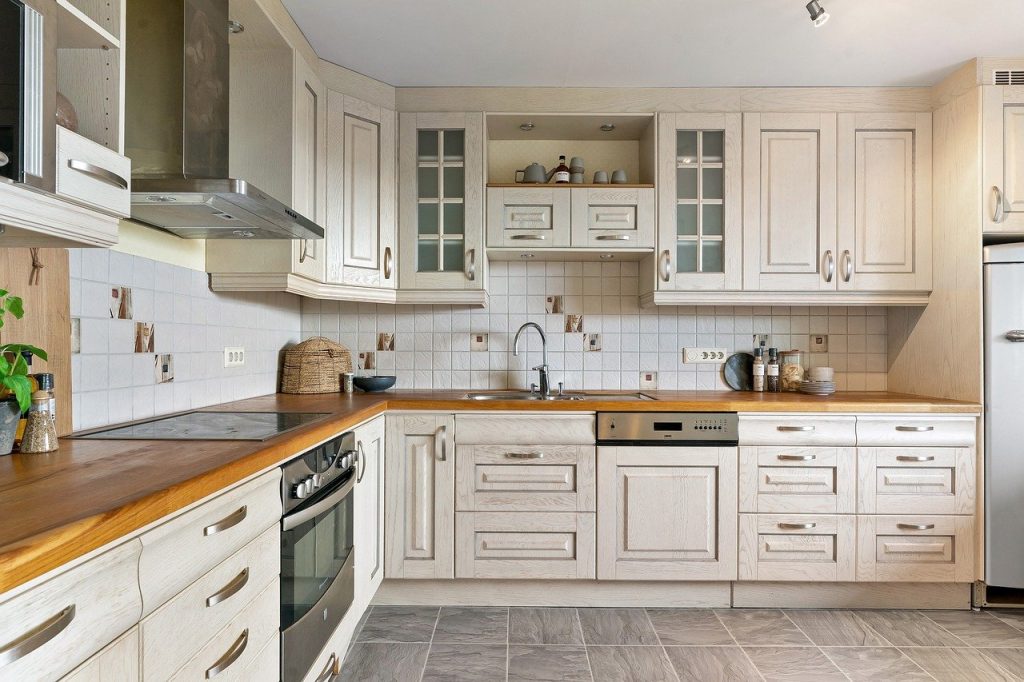When it comes to selecting the perfect kitchen sink, the material you choose plays a critical role in both its functionality and aesthetics. Three of the most popular kitchen sink materials—stainless steel, quartz, and ceramic—each offer unique advantages. But how do you know which one is right for your kitchen? Let’s take a closer look at the pros and cons of these materials to help you make an informed decision.
1. Stainless Steel Sinks: Durable, Stylish, and Easy to Maintain
Stainless steel has long been a top choice for kitchen sinks. Known for its strength, sleek appearance, and low maintenance, stainless steel offers a modern look that fits well in both traditional and contemporary kitchens. But what makes it so popular?
Why Choose Stainless Steel?
Stainless steel is durable, resistant to stains, and very easy to clean, making it a practical choice for busy kitchens. It can handle high temperatures and is less likely to chip or crack compared to other materials. Plus, stainless steel sinks come in a variety of styles and sizes, from single-basin designs to larger, double-basin options, allowing you to choose one that best fits your needs.
Pros of Stainless Steel
- Highly resistant to stains, heat, and rust.
- Easy to clean with a simple wipe-down.
- Perfect for both modern and traditional kitchen designs.
- Available in a range of finishes, including brushed, satin, and polished.
- Affordably priced in comparison to some other materials.
Cons of Stainless Steel
- Can scratch more easily, especially with heavy-duty cleaning tools.
- May show water spots or fingerprints, especially with shiny finishes.
- Prone to noise from pots, pans, and other kitchen utensils hitting the surface.
2. Quartz Sinks: Sophisticated, Durable, and Low-Maintenance
Quartz sinks have surged in popularity due to their beautiful appearance and remarkable durability. Made from a combination of natural stone and resin, quartz sinks are available in a range of colors and finishes, making them an excellent choice for homeowners looking to match their sink with the overall theme of their kitchen.
Why Choose Quartz?
Quartz sinks combine the best of both worlds: the beauty of natural stone with the resilience of synthetic materials. They are non-porous, so they won’t stain easily, and they are resistant to scratching, chipping, and heat. Additionally, quartz sinks tend to be quieter than stainless steel, making them an attractive option for those who prefer a quieter kitchen environment.
Pros of Quartz
- Non-porous surface that resists stains and bacteria.
- More noise-resistant compared to stainless steel sinks.
- Highly durable, resistant to scratches and chips.
- Available in a wide range of colors and patterns to match any kitchen style.
- Relatively low-maintenance and easy to clean.
Cons of Quartz
- Higher initial cost than stainless steel and ceramic sinks.
- Can be prone to cracking or chipping if subjected to heavy impact or extreme temperature changes.
- May require periodic resealing to maintain its protective surface (depending on the brand and quality).
3. Ceramic Sinks: Timeless Charm and Durability
Ceramic kitchen sinks, particularly those made of fireclay, offer a classic and timeless appearance that suits a variety of kitchen styles. These sinks have been used for decades due to their strength, smooth finish, and beautiful appearance. They can be particularly appealing for traditional, farmhouse, and country-style kitchens.
Why Choose Ceramic?
Ceramic sinks are highly resistant to scratches, stains, and chipping, and their glossy finish adds a touch of sophistication to any kitchen. They are also heat-resistant, making them ideal for kitchens where hot pots and pans are often used. While ceramic sinks may be heavier and more prone to cracking under impact, their aesthetic appeal and functionality make them a popular choice.
Pros of Ceramic
- Highly durable and resistant to scratches, stains, and high heat.
- Timeless aesthetic that fits well with classic kitchen designs.
- Glossy, smooth finish that’s easy to clean and maintain.
- Resistant to chipping, making it a great option for households with heavy kitchen use.
Cons of Ceramic
- Heavier than stainless steel and quartz, making installation more challenging.
- Prone to cracking or chipping if heavy objects are dropped onto the sink.
- Generally more expensive than stainless steel sinks.
How to Choose the Right Sink Material for Your Kitchen
Choosing the right kitchen sink material ultimately depends on your needs, budget, and kitchen style. Here are some considerations to help guide your decision-making process:
1. Budget
If you’re working with a tight budget, stainless steel is likely your most affordable option, as it provides great value for money while being highly durable. Quartz and ceramic sinks tend to be more expensive but offer enhanced aesthetics and additional features like heat resistance and stain resistance.
2. Durability
All three materials are durable, but the level of durability varies. Stainless steel is resistant to heat and rust, making it ideal for busy kitchens. Quartz offers impressive scratch resistance and heat tolerance, while ceramic is durable but more likely to chip or crack under impact.
3. Noise Levels
If you prioritize a quieter kitchen experience, quartz may be the best option, as it absorbs sound better than stainless steel. Ceramic sinks are also relatively quiet, while stainless steel can be noisy when struck by utensils or dishes.
4. Style
The material you choose should reflect your kitchen’s overall design. Stainless steel is perfect for modern and industrial kitchens, while quartz offers a sleek, contemporary aesthetic with plenty of color options. Ceramic sinks, on the other hand, provide a traditional and elegant look, ideal for classic or farmhouse-style kitchens.
5. Maintenance
If you’re looking for a low-maintenance option, stainless steel is easy to wipe down and maintain. Quartz sinks require minimal care and are stain-resistant, while ceramic sinks may need periodic touch-ups to maintain their glossy appearance, especially if they are exposed to acidic substances.
Which Sink Material Is Right for You?
Choosing the right kitchen sink material—whether it’s stainless steel, quartz, or ceramic—depends on your specific needs and preferences. Stainless steel is perfect for those seeking durability and ease of maintenance. Quartz is an excellent choice for those who want a sophisticated, noise-resistant sink with customizable color options. Ceramic is ideal for homeowners looking for a timeless, high-end finish with excellent durability.
Ultimately, the best sink material for your kitchen will balance functionality, style, and budget. Take time to consider your lifestyle, aesthetic preferences, and how much maintenance you’re willing to perform, and you’ll be sure to find the perfect kitchen sink for your home.


